![]()
 The SFFaudio Podcast #522 – Jesse, Paul Weimer, Marissa VU, Evan Lampe and Amy H. Sturgis talk about Astounding: John W. Campbell, Isaac Asimov, Robert A. Heinlein, L. Ron Hubbard, and the Golden Age of Science Fiction by Alec Nevala-Lee
The SFFaudio Podcast #522 – Jesse, Paul Weimer, Marissa VU, Evan Lampe and Amy H. Sturgis talk about Astounding: John W. Campbell, Isaac Asimov, Robert A. Heinlein, L. Ron Hubbard, and the Golden Age of Science Fiction by Alec Nevala-Lee
Talked about on today’s show:
Alex Nevala-Lee, a book and an audiobook, thinking about legacies, thinking about audiobooks before, the original cool guy, adorable, its nice to be read to, 100 pages of footnotes, Evan, your book doesn’t exist as an audiobook, nobody wants to read anymore, Evan’s gotten to the stage, reading history books, non-fiction is so good on audio, rekindling pleasure, everything is cited, really he said that?, “Fuck, Eando Binder!”, “lambasted dianetics”, its all cited, 13 hours, not padded, way too long, more about their sexual problems, wife-swappin’ again, a problem for a lot of books, so easy to read, just have a little listen, so engrossing, so well written, The Amazing, The Astounding, And The Unknown by Paul Malmont, the Navy yard, commentary on the stories, I Will Fear No Evil, John W. Campbell is important, Ben Bova, two confusing awards, Hugo Gernsback needs his own version of this, the one person who is completely missing from this book is H.G. Wells, Olaf Stapledon, Arthur C. Clarke, what about this?, Jesse’s complaints are not very legit, The Return Of William Proxmire by Larry Niven, modern science fiction, the intellectual historian, markets for genres, the 20s-30s-40s, the Cold War, turn towards nativism, a profound effect, the Science Fiction League, a self-aware community, WWII, a fledgling dialogue, this revolution, connecting SF with science, Microcosmic God, this is on Campbell, distinctly American?, issues sent as ballast to the UK, all the foreign editions of Astounding, the British fanzines, Hugo was nuts for electronics, we’re going to invent our own televisions, home amateurs, ham radio operators, the science fiction reader, Tom Swift, the edisonade, fertile soil, the radio boys, Electronic Experimenter, a pulp fiction collection, reading Amazing vs. reading Astounding, technical drawings and weird editorials, not only space opera, The Electrical Experimenter, Larry Niven, they’re weird dudes, a pathetic figure, a tragedy, a mire of pseudoscience, Asimov’s biography, Heinlein’s letters, no no, a horror suspense movie, uplifting, it worked on Heinlein, Asimov was his own little being, the tragedy is coming, blind spots and prejudices, good fiction and good science, the new wave, Harlan Ellison, Ursula K. Le Guin, a machine for generating analogies, he’s given them the tools to push back against him, still influential, descent into pseudoscience and self delusion, Asimov’s preface to Dangerous Visions, we’re the squares, the passing of the torch, the sexual revolution, a cultural revolution vibe, Asimov was a square, “I fuck a lot, man.”, almost sexless, The Gods Themselves, weird alien sex, Heinlein’s weirdness, a lot of revealing things, the role of the wives, a biography of Kay (Catherine) Tarrant, spelling the names, Campbell wasn’t needed, behind the scenes, Astounding is so important, still under copyright, Heinlein getting mad at Campbell, Philip K. Dick has one story in Astounding, what’s going on?, Impostor, Campbell wanted superhumans, The Golden Man, a superhuman idiot, writing in reaction to it, Galaxy Magazine, H.L. Gold’s aesthetic, Campbell didn’t take Alfred Bester!, a gatekeeper, Frederik Pohl, how important The Cold Equations is, you have to keep re-writing this until you get it right, what it does, this is what we are talking about, this is how far we can go, a Star Trek story, here is an episode of something that we can imagine happening, Nightfall by Isaac Asimov, what Campbell was aiming at, a study in what editors can do, seeding the same idea multiple times, turning Asimov down, how would that intelligence work?, a black POV character, a leap of imagination, racism and homophobia as compartmentalization, Dune World by Frank Herbert, Mack Reynolds, Black Man’s Burden, Commune: 2000, the problem is scarcity (there is none, except in jobs), universal basic income, it didn’t matter to you that the kid was Filipino, what the difference between a rationalists and empiricists, here’s how drunk driving should work, you’re not clear yet, a technical journal, that’s not how science works, how science works, grinding lenses, Verne -> submarines, Wells -> warplanes, Campbell -> atom bombs, science fiction leading the science, a legacy, Rocket Ship Galileo, Tom Swift in the Rocket Age, Nancy Drew is not the same, Nazis on the moon, action fun excitement, Elon Musk, pushing in all directions, badly inspired, Paul Krugman, Asimov’s Foundation series, a weird tension, the scientific approach to all things, psychology, a desire to make everything scientific, A.E. Van Vogt, enough to be dangerous, enthusiasm for the ideas didn’t follow through to the methodology, we can make this science too, Hubbard had no interest in science (or science fiction, really), Heinlein’s failing, Asimov was a sexual asshole, a tragic figure, Heinlein falls for Hubbard because he had a uniform, a lying used car salesman, cults, its not about your intelligence, lacking critical thinking, charisma doesn’t translate from the page, judging eyes, I no longer trust you, the worst insult Heinlein could ever give anybody, broken legs and gonorrhea, the asshole sections of Jesse’s email, Heinlein was really blinded by patriotism, the Vietnam War, we need a renaissance for the Heinlein juveniles, Farnham’s Freehold makes a lot more sense now, trying to make a point about Campbell being wrong, hopeful commentary, not including Hubbard, the serpent in the garden, transformative, “the competent man”, competitors and community members, we’re doing something that’s important, the conversations we’re having are important, they hung together for decades, personal loyalty, trolls, the story of the first Worldcon, women nurturing men who were nurturing other men, Donald A. Wollheim was a better troll than anyone living today, contributing something positive, Mimic, he bought a lot of Philip K. Dick, Asimov as a youth, your idea of heaven, the power of picking up one of these magazines, the one thing missing from this book is the history of the covers, the art, fill the space, a little bit of technology, pitch me three new magazine, Weird Tales, tiny little things, when H.P. Lovecraft turns down the editorship of Weird Tales, what would we have or what would we be missing?, a magazine with a legacy, Elon Musk is a Heinleinian character, old letters pages are fossils, D.D. Harriman, The Man Who Sold The Moon, a trap, not hard enough on the Soviets!, a whole lifetime of a really complicated human being, the whole point, the functionalist stuff sounds like Campbell, creativity doesn’t work that way, how writing works, The Trouble With Tribbles, everything is in reaction, H.G. Wells doesn’t seem to have a massive precursor, The Time Machine, Last And First Men, Olaf Stapledon, Starmaker, those men are heroes, page 370 and 371, Barry M. Malzberg, sympathize with his critics, the question of victimization, a problem solving medium, not everyone is a hero, the way science fiction is today, science fiction should explore everything, schlubs, we all live in a world that’s increasingly become science fictional, Wells’ heroes are assholes, the New Wave pushes back against the Campbellian revolution, J.G. Ballard, mistrust of the meta-narrative, setting up things that come later, wanting 15 other books to be written, a companion volume on the Futurians, creating editors, Judith Merrill, here’s another community, C.M. Kornbluth, glimpses, Arena by Fredric Brown, The Orville is new Star Trek: The Next Generation, the a plot and the b plot, season 8 Next Generation, Enemy Mine, Hell In The Pacific, Lee Marvin, no alien movie, Star Trek, Deep Space Nine, Enterprise, Space: 1999, The Most Dangerous Game, Predator, somebody sitting around, Gilgamesh and Enkidu, the b-plot, The Corbamite Maneuver, The Kobayashi Maru, Amy’s Looking Back At Genre History, Microcosmic God by Theodore Sturgeon, always asking questions, how do you know, a meta-story, it’s about what happens when you read Astounding, Sandkings by George R.R. Martin is a retelling of Microcosmic God, Dragon’s Egg by Robert L. Forward, Hal Clement, science fiction luminaries, missing an ode to Hal Clement, the chapter titles, Who Goes There?, it doesn’t give you what you want, Don A. Stuart, Twilight, two types of storytellers, historical narratives, a remarkable achievement, history is a pruning job, a really important book, more books just like this, every time we say “Astounding” take a drink, endnotes, bibliography, a gift that’s going to keep on giving, what happens after this, some editor discovered or promoted Dashiell Hammett, Black Mask, railroading magazines, westerns, isn’t Analog still going today?, finally why this magazine called Analog?, it’s a metaphor, Analog Science Fiction and Fact, factless, Willy Ley, trying to make the reality behind science fiction more real, giving writers a grounding, Asimov: what a man!, writers who are complaining about low pay rates, E.E. Doc Smith, the Dean drive, a reactionless space drive, more biographies of these pulp era mags, The World Of Nitrogen, The Realm Of Measures, Asimov On Numbers, super-clear writing, Campbell’s book of collected editorials, Lecherous Limericks, bra-snapping and carrying on, Annoted Gulliver’s Travels, a writing and learning machine, Ellery Queen’s Mystery Magazine, mysteries, the joy of reading and the joy of writing, his mind was always elevator, that kind of curiosity is so rare, he wanted to know the answers to everything, a powerful force in reality, The End Of Eternity, a fun book.
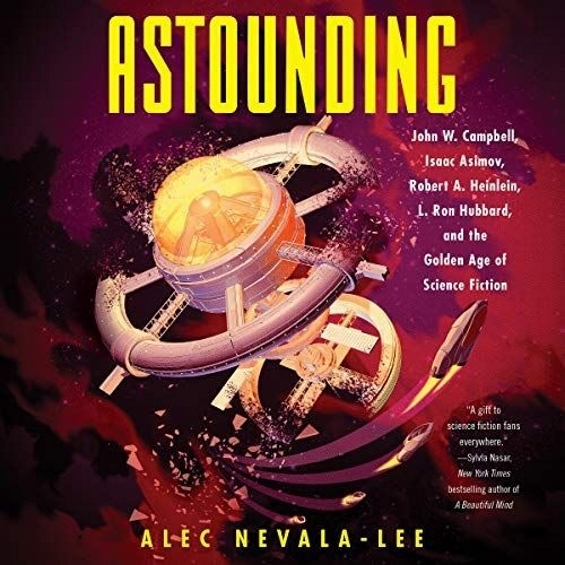
Posted by Jesse Willis

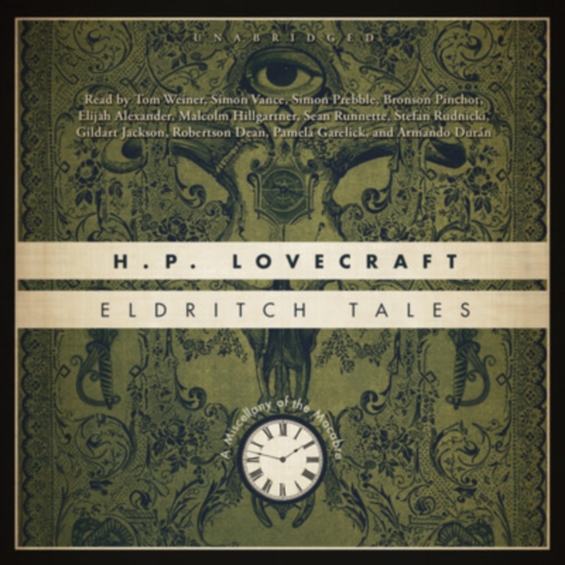

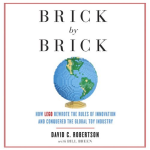
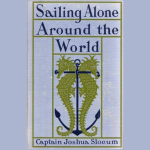
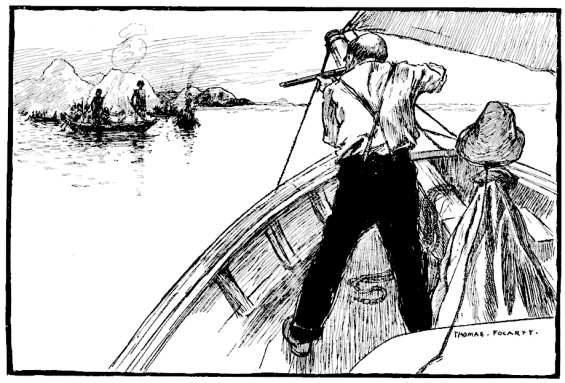


 The World Until Yesterday: What Can We Learn from Traditional Societies?
The World Until Yesterday: What Can We Learn from Traditional Societies?